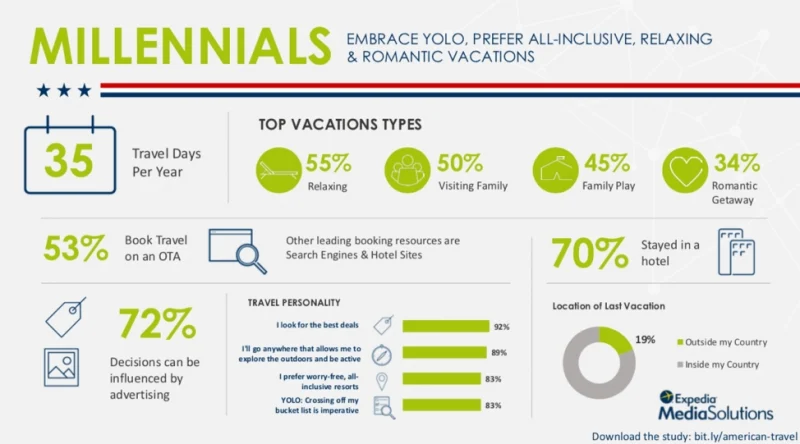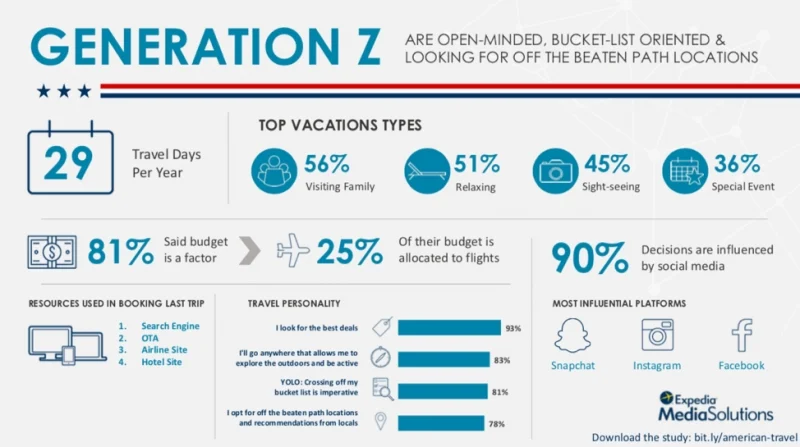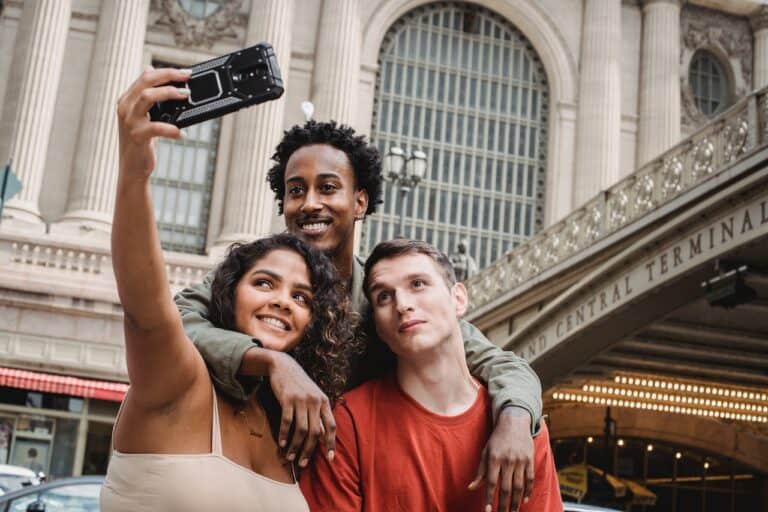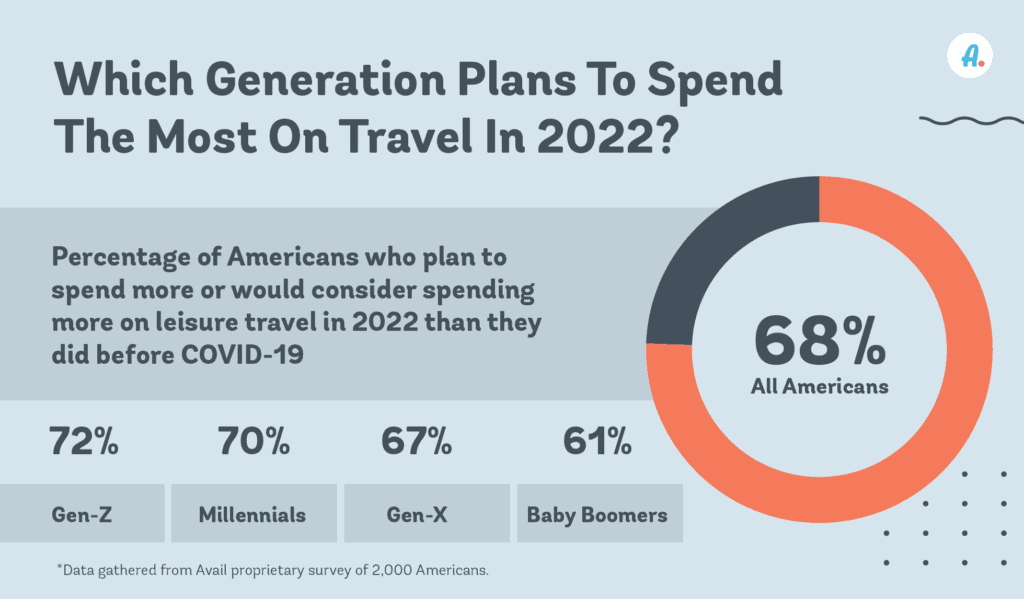
With more and more people traveling again and booking holiday trips for the year ahead, now is the best time to make sure you’re marketing your property to the right customers. Which will it be, Gen Z vs. Millennials?
Not only are these two groups now the most frequent travelers to date, but they’re also known to spend the most money on their trips.
As far back as 2016, Airbnb already predicted that Millennials and the younger generations would account for 75% of all consumers and travelers by the year 2025. That’s a short 2 years from now!
If you haven’t set your eyes – or your marketing efforts – on these 2 key demographics, it’s not too late. Read on to see how they’re currently driving the travel and hospitality industries, and why they’re set to become the most significant customer base in the next few years.
Millennials, or Generation Y, are those aged 26 to 41 years old in 2022. They were born between 1981 and 1996, entered the workforce during the Great Recession, and are now reaching their prime spending years. They make up about a quarter of the US population.
Gen Z, also known as Zooomers or the “iGeneration”, are those born from 1997 to 2012. They’re anywhere from 10 to 25 years old. They’re now coming of age and comprise the largest (27%), and most ethnically diverse segment of the US population.
While both generations are in the lead when it comes to making travel plans for 2022, the Gen Z group was willing to spend more money than any generation. 72% of Zoomers surveyed by Avail said they expected to spend more or the same amount on trips this year than in pre-COVID times. And even before COVID, the iGeneration already ranked travel and “seeing the world” as the most important way (65%) to spend their money.
However, Millennials travel more than any other generation on the whole. They have an average of 35 vacation days per year, compared to only 29 days for Gen Z. In 2022, Gen Y planned to take more trips (at an average of 4.4 trips) than Gen Z (at 4.1 trips).
But both cohorts are hands-down frequent travelers. And they’re looking for unique and immersive experiences. While a beach-side property may already be a treat for Boomers and Gen X, it won’t suffice for the younger set.
Whether your property is in a busy metropolis, a quaint suburb, or a remote rural location, you’ll want to think of ways to draw these discriminating guests.
Generations Y and Z in the Western world share a lot of things in common. Having grown up with the internet, they’re both smart, adaptable, tech-savvy, and always online.
Both are open-minded travelers and will travel the country for the following reasons: to visit friends and family, see new US cities, and give their mental health some much-needed boost.
Both groups rely on the internet for word-of-mouth (a.k.a. social media) recommendations and inspiration on where to go and what to do. They’ll veer away from traditional accommodations and tourism services. Instead, they’ll craft their own unique travel experiences.
And when it comes to ethics, both groups value socially and environmentally responsible businesses. They’ll look for sustainability in every brand and service they patronize. They’ll opt for eco-friendly accommodations, question the frequency of towel changes at a hotel, or they may frown at the use of disposable cups in a coffee machine!
But Generations Y and Z do have a few differences. Let’s take a closer look at each of them.


We can’t stress this enough: these young jet-setters rely heavily on social media. 70% of Millennials use online reviews to finalize decisions about their travel arrangements. And 29% of older Gen Z (ages of 18-24) and 27% of Millennials consider reviews to be one of the three most important factors in making a travel decision.
It’s imperative that you have a strong presence on Facebook, Instagram, and Snapchat to capitalize on both generations’ reliance on social media “advertising”. Each guest could be your influencer and product endorser to countless other potential guests.
Additionally, give them a reason to share good experiences about your properties. Whether it be styling your place to make it Instagrammable, or posting a hashtag on behalf of your neighborhood and the great things to see and do in the area.
If it’s Millennials you want to draw, then promote experiences and nearby attractions that appeal to young families. Provide family-friendly amenities like toys, board games, an outdoor grill, and pet-friendly amenities.

While both Gens Y and Z already have purchasing power and significant influence on supply and demand, Zoomers are quickly shaping and redefining the future of tourism in general. They’re also expected to become more affluent – and the most influential segment – in e-commerce in the coming years. As early as now, try to build strong relationships with them.
If your property is in a large urban area, you might lean towards catering to rich Millennials, Millennial business travelers, or Millenial parents vacationing with their young children.
On the other hand, if you’re near a beach, national park, or any natural attraction, look for local events and unique, exciting activities that would draw Zoomers more.
But if possible, expand your customer base by catering to both generations. Know their values and preferences, and use the channels they communicate on. When you make it your goal to serve their needs, you’ll be well on your way to capturing these two key demographics.

Ready to learn how we built and operate a $2M/year short-term rental business, operate properties throughout the USA remotely, and acquired 70+ properties without owning any in just 2 years? Attend our free online master class to learn how you can do the same. Click here.